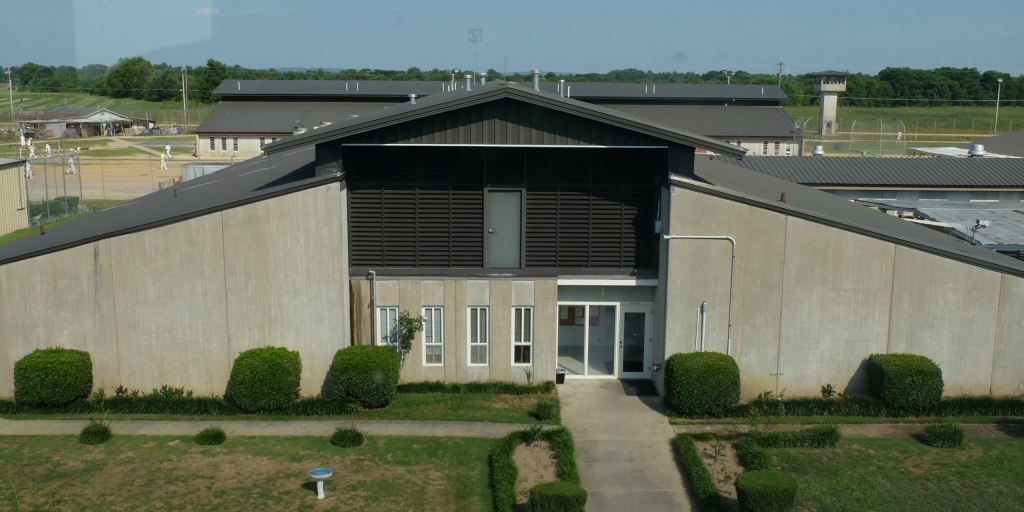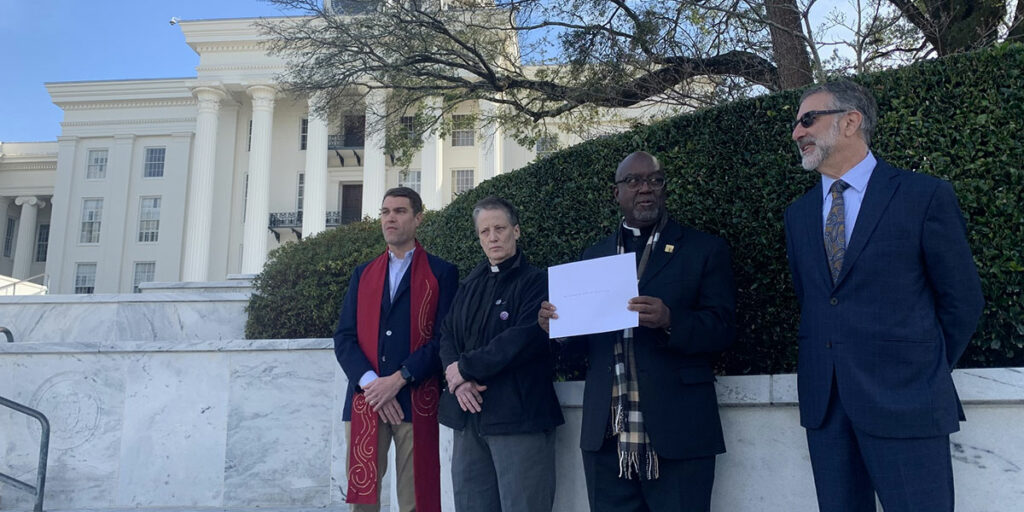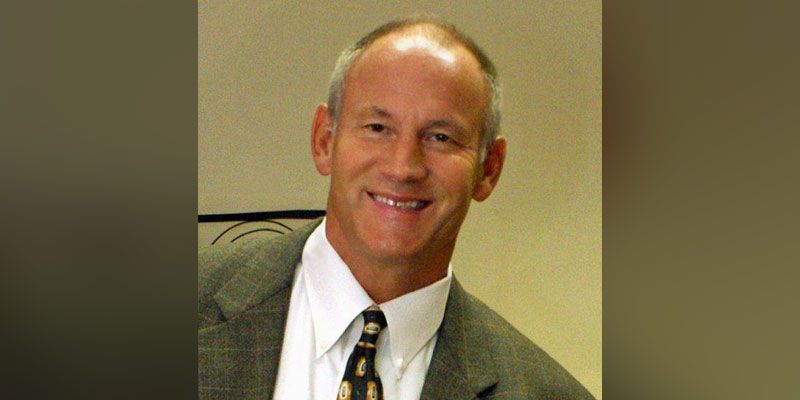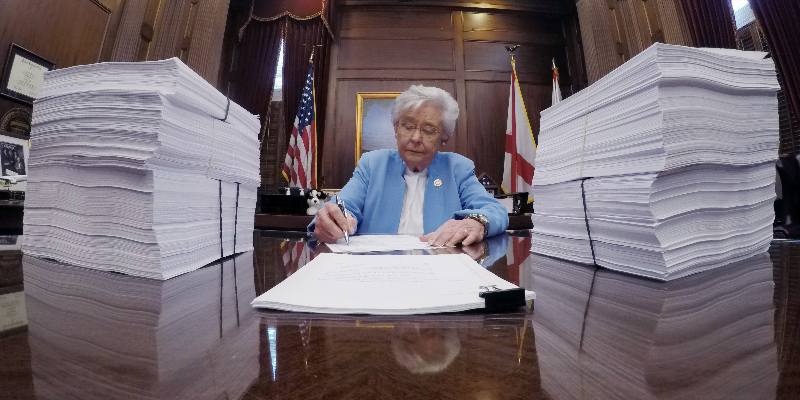The Department of Justice’s (DOJ) Civil Rights Division and the U.S. Attorney’s Offices for the Northern, Middle and Southern Districts of Alabama on Wednesday concluded that there is reasonable cause to believe that the conditions in Alabama’s prisons for men violate the Eighth Amendment of the U.S. Constitution.
According to a press release, the DOJ concluded that there is reasonable cause to believe that the men’s prisons fail to protect prisoners from prisoner-on-prisoner violence and prisoner-on-prisoner sexual abuse, as well as fail to provide prisoners with safe conditions.
The Eight Amendment says, “Excessive bail shall not be required, nor excessive fines imposed, nor cruel and unusual punishments inflicted.”
As required by the Civil Rights of Institutionalized Persons Act (CRIPA), the DOJ provided the State of Alabama written notice of the supporting facts for these alleged conditions and the minimum remedial measures necessary to address them.
“The Constitution guarantees all prisoners the right to be housed in safe conditions and not be subjected to violence and sexual abuse,” said Assistant Attorney General Eric Dreiband for the Civil Rights Division. “Our investigation found reasonable cause to believe that Alabama fails to provide constitutionally adequate conditions and that prisoners experience serious harm, including deadly harm, as a result. The Justice Department hopes to work with Alabama to resolve the Department’s concerns.”
In a statement, Governor Kay Ivey responded, saying, “We appreciate the U.S. Department of Justice’s efforts to ensure open lines of communication with the State of Alabama.”
“DOJ has identified many of the same areas of concern that we have discussed publicly for some time,” she continued. “Over the coming months, my Administration will be working closely with DOJ to ensure that our mutual concerns are addressed and that we remain steadfast in our commitment to public safety, making certain that this Alabama problem has an Alabama solution.”
Remedying the situation
The governor’s office advised that the Alabama Department of Corrections (ADOC) has already acknowledged many of the issues in the DOJ’s findings and has been actively working to remedy these concerns by improving correctional officer hiring and retention; developing effective prison management, including efforts to curtail the entry of contraband; and replacing an outdated prison system with state-of-the-art correctional facilities designed to safely, effectively and humanely manage and meet the needs of a diverse inmate population.
This is affirmed by the DOJ stating in its finding letter, which reads, “We recognize ADOC has begun to make some positive changes in recent years.”
The prison construction plan being spearheaded by the Ivey administration is a vital part of correcting the critical issues outlined by the DOJ.
“ADOC voluntarily assisted the DOJ in every reasonable way with the investigation,” ADOC Commissioner Jeff Dunn stated. “Our primary objective is to ensure each facility provides a humane, secure, and safe environment for inmates, and that reforms already in place and proposed bring about positive, tangible changes throughout the prison system.”
He added, “In response to DOJ’s findings, it is important to understand all the current efforts ADOC has taken and will continue to take to improve the conditions of confinement within the male prison system. Governor’s Ivey’s commitment to working closely with the Legislature to resolve this generational problem will ultimately lead to a 21st Century prison system.”
Alabama’s U.S. Attorneys showed confidence in the state’s ability to correct the problems while emphasizing how serious the problems are.
“This massive undertaking alleges constitutional troubles in the Alabama Department of Corrections which are serious, systemic, and in need of fundamental and comprehensive change,” U.S. Attorney for the Northern District of Alabama Jay Town stated. “That being said, I have great confidence in the State of Alabama’s resolve to correct the prison system’s problems. The commitment by Governor Ivey, Commissioner Dunn, and so many others in the State’s leadership to affirmatively address these inherited issues offers great promise of our development of a meaningful remedy.”
“An extraordinary amount of time and effort was expended to investigate this matter,” U.S. Attorney for the Middle District of Alabama Louis Franklin, Sr. said. “Although the results of this investigation are disturbing, I look at this as an opportunity to acknowledge that the problems are real and need to be addressed immediately. We are committed to working with State officials to ensure that the Department of Corrections abides by its constitutional obligations.”
“The United States Constitution bans ‘cruel and unusual punishments’ but the conditions found in our investigation of Alabama prisons provide reasonable cause to believe there is a flagrant disregard of that injunction,” U.S. Attorney for the Southern District of Alabama Richard Moore added. “The failure to respect the rule of law by providing humane treatment for inmates in Alabama prisons is a poor reflection on those of us who live and work in Alabama. We are better than this. We do not need to tarry very long assessing blame, but rather commit to righting this wrong and spare our State further embarrassment. The task is daunting, but one we must embrace now without reservation. I am confident that Governor Ivey and the Legislative leadership in the State of Alabama understand the nature of this inherited problem and that they are committed to sustainable solutions.”
Efforts for the improved hiring and retention of correctional staff have recently been bolstered with the state legislature’s $86 million funding appropriations in 2018 and 2019 for hiring additional correctional and health services staff. These efforts continue with a $31 million request for ADOC’s proposed 2020 budget, which would help the department hire 500 new correctional officers and increase the pay scale for all security personnel.
Continued multi-agency law enforcement security operations, like one recently conducted at the St. Clair Correctional Facility on February 28, utilize drug detection canines and drone technology to confiscate contraband at prison facilities to improve safety among inmates and correctional staff.
ADOC has also expanded its increased oversight of mental health service delivery, with the creation and addition of multiple mental health oversight staff positions and staff-wide training. Additionally, with assistance from nationally recognized clinical mental health experts, the department developed a comprehensive mental health program for standard mental health screening, crisis and suicide intervention, prevention and specialized mental health treatment.
The Civil Rights Division and the United States Attorney’s Offices for the Northern, Middle and Southern Districts of Alabama initiated the investigation in October 2016 under CRIPA, which authorizes the Department to take action when it has reasonable cause to believe there is a pattern or practice of deprivation of constitutional rights of individuals confined to state or local government-run correctional facilities.
This investigation was conducted by attorneys with the Special Litigation Section of the Justice Department’s Civil Rights Division and the U.S. Attorney’s Offices for the Northern, Middle and Southern Districts of Alabama.
Update 9:55 a.m.:
State Sen. Cam Ward (R-Alabaster), the chairman of the Senate Judiciary Committee, spoke with reporters Wednesday morning. He advised that all three of Alabama’s U.S. Attorneys briefed state officials in person on the DOJ findings on Tuesday.
Ward said the DOJ has given the state 49 days to propose a plan to fix the problems.
“The report’s pretty damning for the state. But I think we can do it,” he said, adding it was too early to say whether a special session of the legislature will be needed.
Ivey’s proposed budget would fix staffing problems, as long as the state continues to hire 500 new correctional employees annually for the next four years, according to Ward.
However, he added that overcrowding and violence problems are still a work in progress.
Sean Ross is a staff writer for Yellowhammer News. You can follow him on Twitter @sean_yhn













